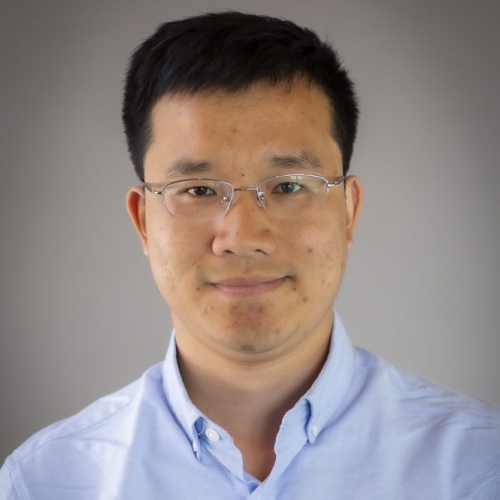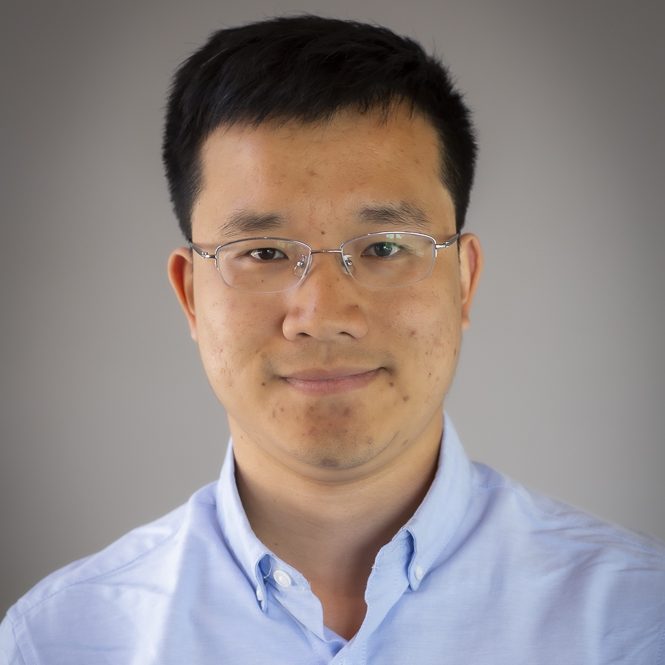
Jiahao Diao
University of Tasmania
I am in my third year PhD in mathematical science. I used to study in applied mathematics in my bachelor degree and then I went to UQ for my master degree in financial mathematics. I am good at apply maths in different areas. Therefore, my master project was focusing on “Control theory” and “Reinforcement learning” instead of financial modelling. I have published a conference paper “Fish or cut bait?” in IEEE during the last semester of my master study. After that, I started my PhD study in University of Tasmania and my PhD research is focusing on “Mathematical modelling in gene family evolution”. I am now working on Level-dependent quasi-birth-and-death process for the evolution of gene family duplicates and the tree shape balanced of gene tree under different mathematical models. I am very interested in applying mathematics in real world study, since I have been through the Covid-19 outbreak and now still in China due to the travel restriction of Australia.
Can you give me a quick overview of the type of mathematics you are studying and its potential applications or outcomes
I am applying mathematical modelling in gene evolution. We consider the evolutionary process of gene family is a stochastic process which is based on the current state. Each gene has some probability to be duplicated or lost. Also, the function in each gene has some probability to be lost. Our aim is to find some mathematical models that can predict this kind of evolutionary process and also can fit in the real data set.
How did you get into the mathematical sciences/bioinformatics?
After I completed my master’s degree, I was seeking a future research area more related to the real-world study. I found the project which is my current supervisors posted online and my previous supervisor recommended it to me. I am very interested in gene evolution and I chose to work in this area to understand the mystery of the evolutionary process.
What advice would you give to your younger self or others wanting to studying the mathematical sciences?
My advice to my younger self is you do not need to learn too many difficult courses in mathematics. I would like to give others advice that you should have enough knowledge in basic maths and statistics, but for many difficult courses, you can learn that after you really want to do research in this area.
What was your motivation for attending AMSI BioInfoSummer?
I attended AMSI BioInfoSummer 2019 and found it very useful for me to extend my knowledge. The motivation is I can find the future research after I complete my PhD study. I obtained much information about how I can apply my previous research experience in my future career.
What was your main take away from AMSI BioInfoSummer?
I enjoyed learning R package for single cell RNA sequencing analysis and hearing more about machine learning in genomic prediction which is also my research interests. My supervisors and I are now reading the papers from CSIRO in this area. In addition, I know WEHI in the conference which is more potential job opportunity in my future career. In summary, I think I obtained a lot for AMSI BioInfoSummer.
If a peer asked you if they should attend AMSI BioInfoSummer, how would you describe the conference to them?
AMSI BioInfoSummer combines mathematical theory and biological theory and gives us a view how to apply them in the real world. There are many useful methods for modelling and data analyse. Moreover, it also includes how to apply your work in industry such as medical science, wildlife protection and so on.
BioInfoSummer was held as a virtual event for the first time in 2020. What was the biggest positive from your point of view of holding it in this format and/or the biggest challenge?
The biggest positive is even with Covid-19 travel restriction, we can still have a conference online and obtain enough knowledge and information. The biggest challenge was different time zones made some sessions a bit hard to focus, and also face to face is still the best way to build connection and have nice conversation with others.
Where do you want the mathematical sciences to take you? Where do you see yourself in five or ten years’ time?
I want to keep doing research in mathematical sciences. I hope that I can still stay in university and then keep doing research and also guide students in their further mathematical studies.
2020 has been a very unusual and challenging year. What is one thing you have learnt about yourself this year? Or a new skill you have developed?
This year I needed to work from home due to the travel restriction. I learnt how to do research far from the university and overcome the trouble from different time zones. Moreover, I needed to overcome the blocked from the Internet which I need to access reference more difficult when I am in China. I think the best thing I learnt is I can still make good progress with my research even when restricted to working from my home.

